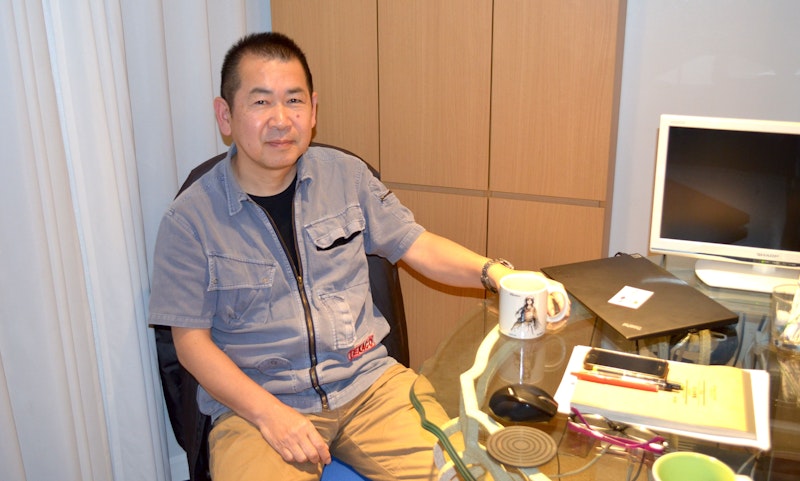When I first read about Shenmue creator Yu Suzuki’s hermetic approach to video game design, a wry smile crossed my face. Here's a man indifferent to playing or even watching the very games he crafts, absorbed in creating a “new reality” rather than sampling those of his contemporaries. In this enigmatic creator, I found a strange sort of companion—a fellow cynic bound like Prometheus to do the eternally recurring work of content creation. Suzuki's reality, like mine, is a carefully fabricated mirage that distracts us from the essential emptiness of his chosen field.
Suzuki and I are both shackled to the banality of our respective crafts. We know that the majority of what gets produced is inane—games and takes designed for mass consumption, often lacking in nuance or complexity. Suzuki might revel in the details of the raindrops on a jacket, but we also recognize these as diversions, small points of interest in a largely unremarkable landscape. Like Suzuki, who's captivated by the act of “cooking” rather than “eating,” I find the culinary process compelling but the final dish unappetizing—one consumes it merely for the calories, the “macros,” needed to stay alive. It's an existential dilemma: We build what we can hardly bear to partake in.
When I first played Shenmue as a teenager, I admired Suzuki's fastidious eye for detail. Now I see it as a cautionary tale. The minuscule intricacies—weather effects, pointless objects, and the like—are but luxurious distractions from the game's core banality. My own meticulous breakdowns of culture function similarly: A veneer of complexity that masks the underlying emptiness. We're merely offering the audience an oddly-shaped chalice containing the same old wine—mostly bitter, rarely intoxicating.
Like Suzuki, who crafts realities "somewhere between true and false," I dwell in a shadowy realm of takes and counter-takes. And let's be honest: They're all bait, designed to provoke reaction, not reflection. I marvel at the op-ed writers churning out voluminous essays on the latest Hollywood blockbusters. How do they manage to find the will to type so many worthless words? Merely reading them would be bad enough, but writing them—ye gods! If you pay me, I might tell you why a thing does or doesn't suck, but don't expect me to believe a word of it. As Laurence Sterne’s Tristram Shandy so eloquently put it, "For my own part, I am resolved never to read any book but my own, as long as I live."
Although separated by enough world and time, Shandy, Suzuki, and I all found ourselves in the same business: creating "discourse drivers" that fuel the ravenous content machine. Whether it's a sharp detail in a game or a fresh perspective on Oliver Anthony—whoever that is, aside from a carrot-topped country singer who shares my Christian name—we're all just filling the void with more void. When something new emerges, I don't care what it is. I'm not interested in the object—the “thing itself”—but rather the potential takes it can generate. Because that's what it's all about: keeping the gears of discourse grinding, even when there's no grist for the mill, even when you’re reduced to baking that content bread with sawdust rather than flour.
The more I ponder the work of Yu Suzuki, the more I find our similarities to be a mocking testament to the absurdity of our crafts. We don't indulge in what we produce because to do so would be an admission of defeat—a plunge into an abyss of meaningless content. We create because it's what we do, even if what we're assembling is a universe of carefully crafted distractions: “Therefore he will construct funhouses for others and be their secret operator—though he would rather be among the lovers for whom funhouses are designed,” as John Barth writes in “Lost in the Funhouse.”
Suzuki and I are both willing participants and helpless captives, circling around the world of content in an endless waltz that offers no promise of resolution, only fleeting moments of insight into our self-imposed exile from meaning. Over to Barth, then, to bring it all back home: “He wishes he had never entered the funhouse. But he has. Then he wishes he were dead. But he's not.” Perhaps R.P. Blackmur, that great unlettered critic, got it right when he said this of feckless Henry Adams’ world-beating meditations on failure and futility: “Thought asks too much and words tell too much; because to ask anything is to ask everything, and to say anything is to ask more.” Yes, yes—and so it goes, until it doesn’t.

